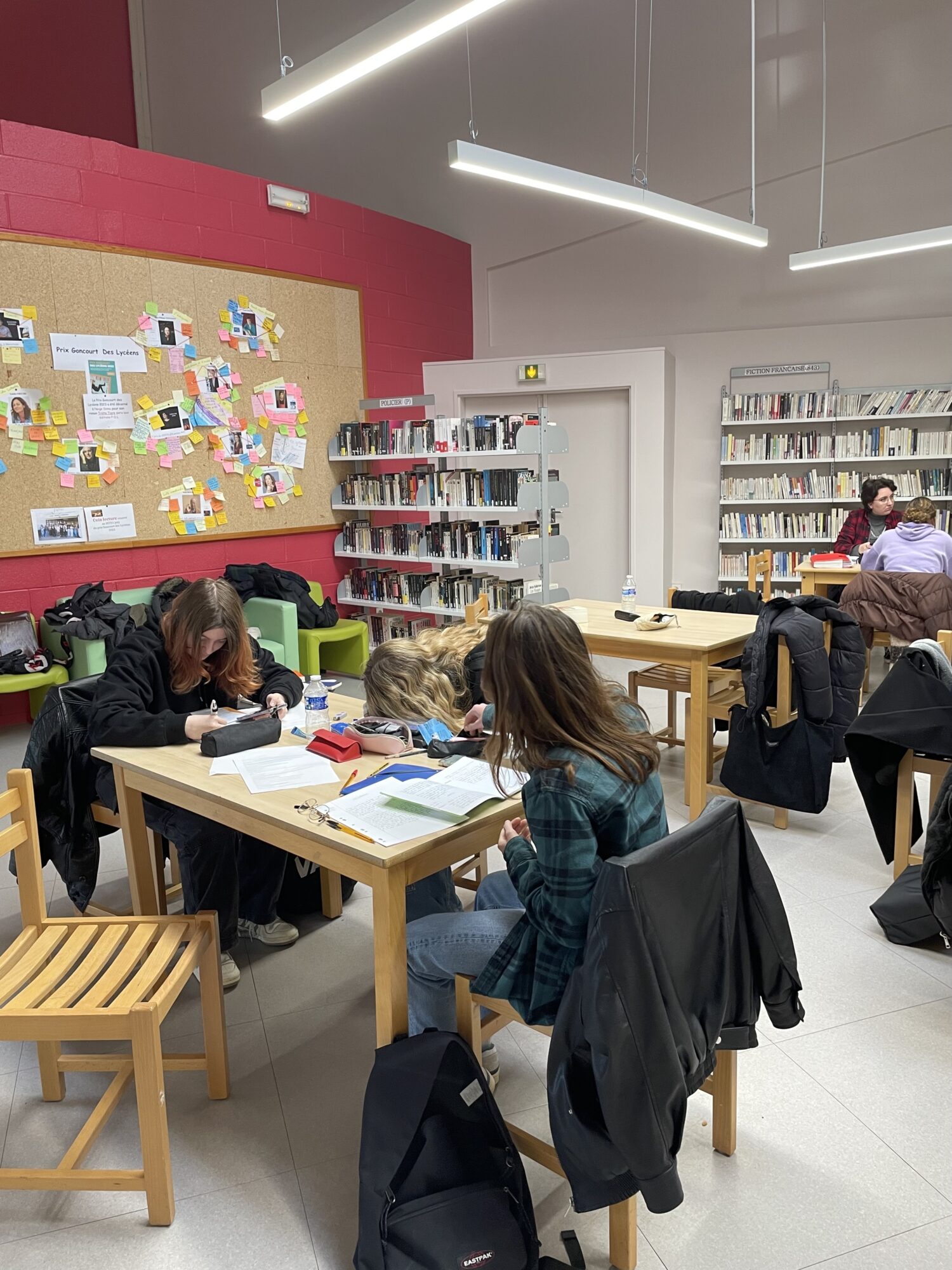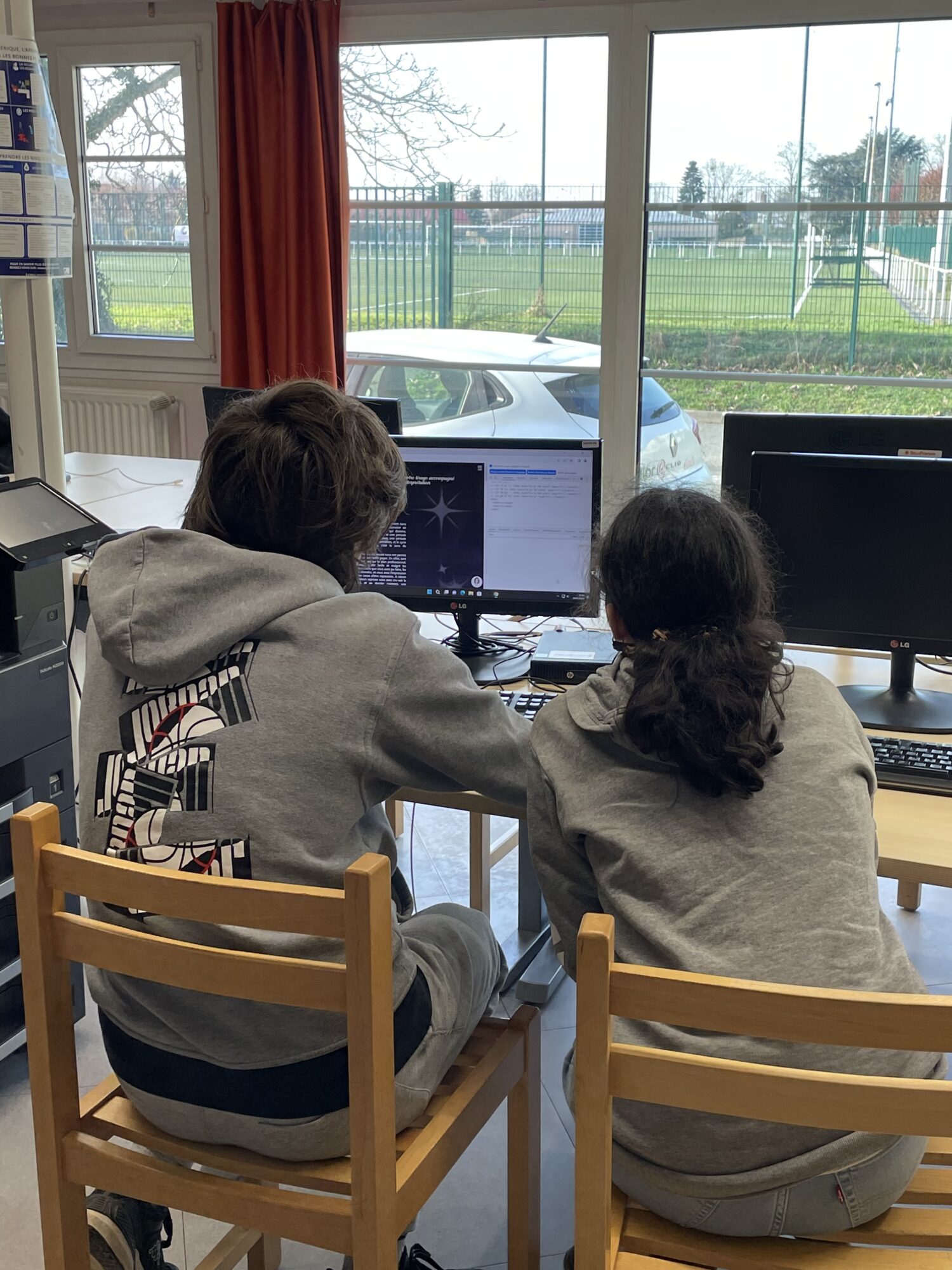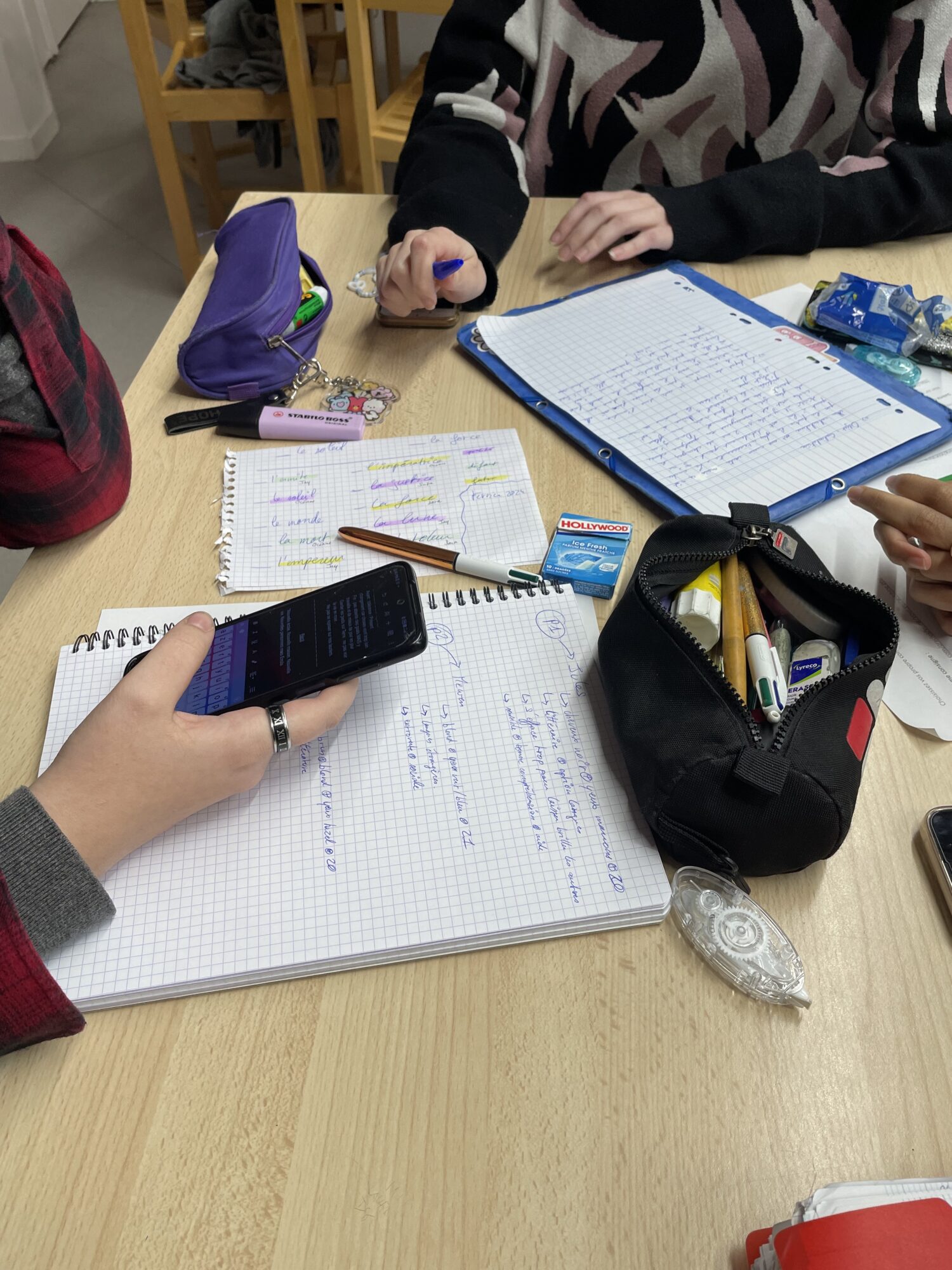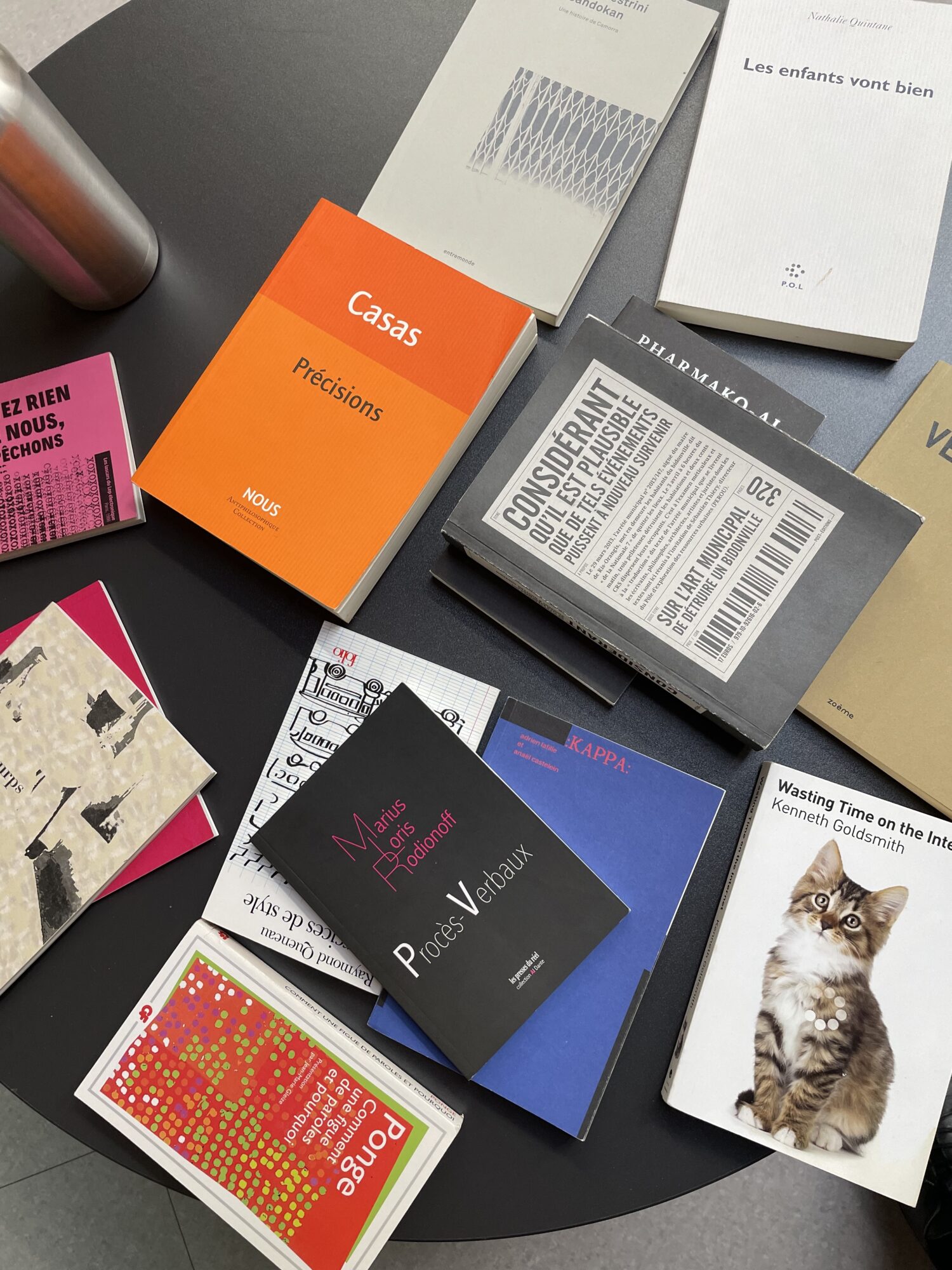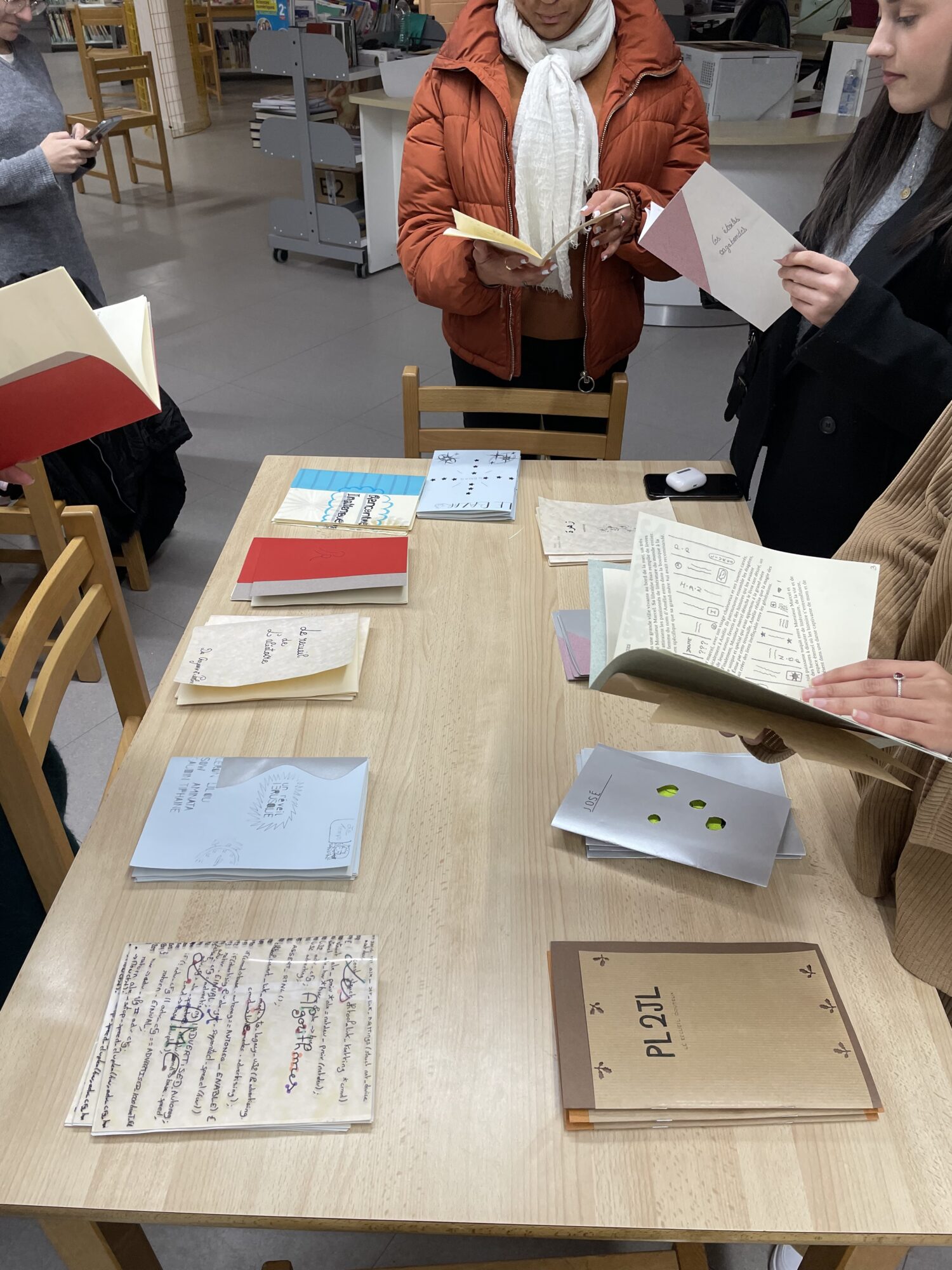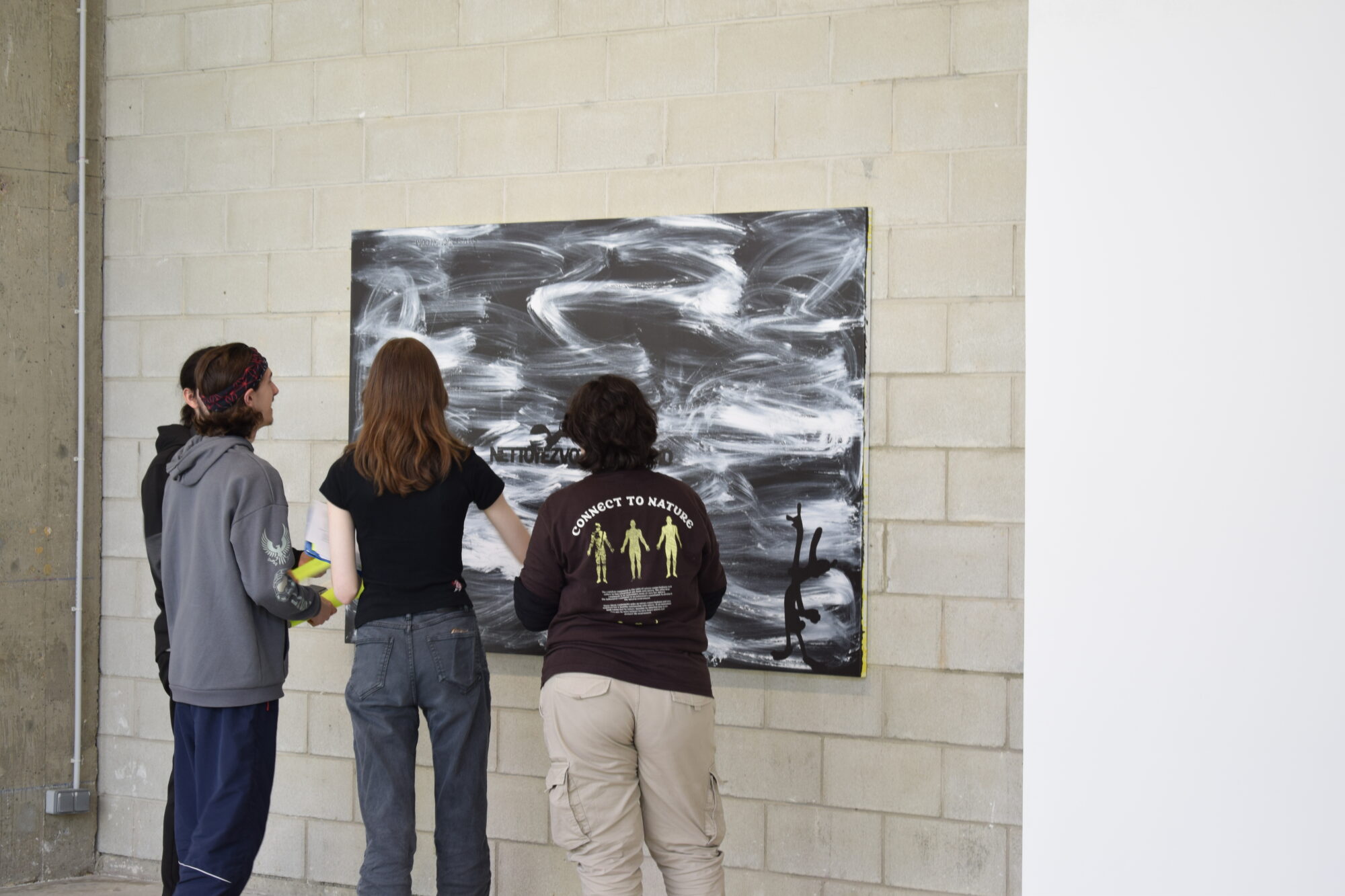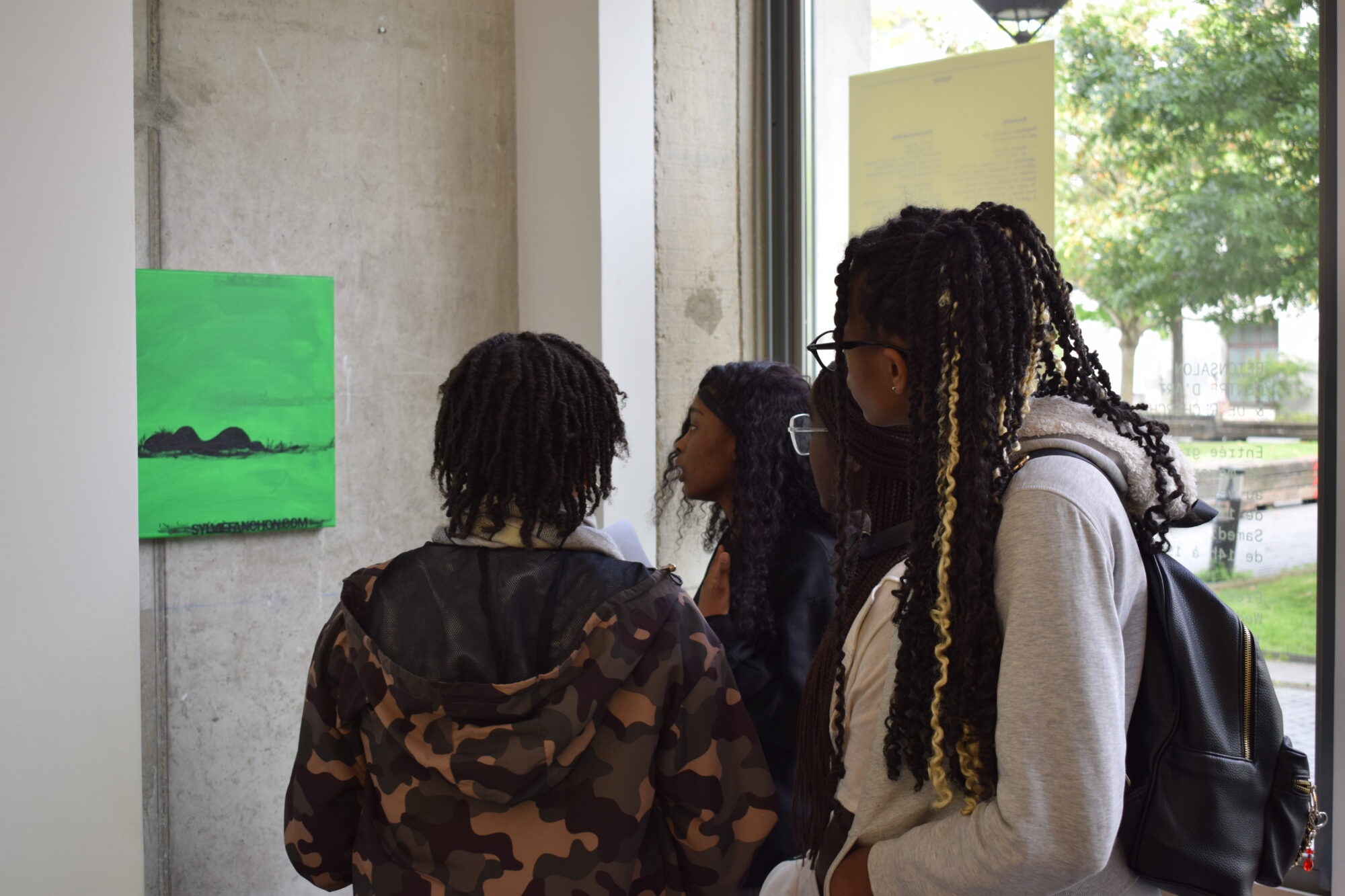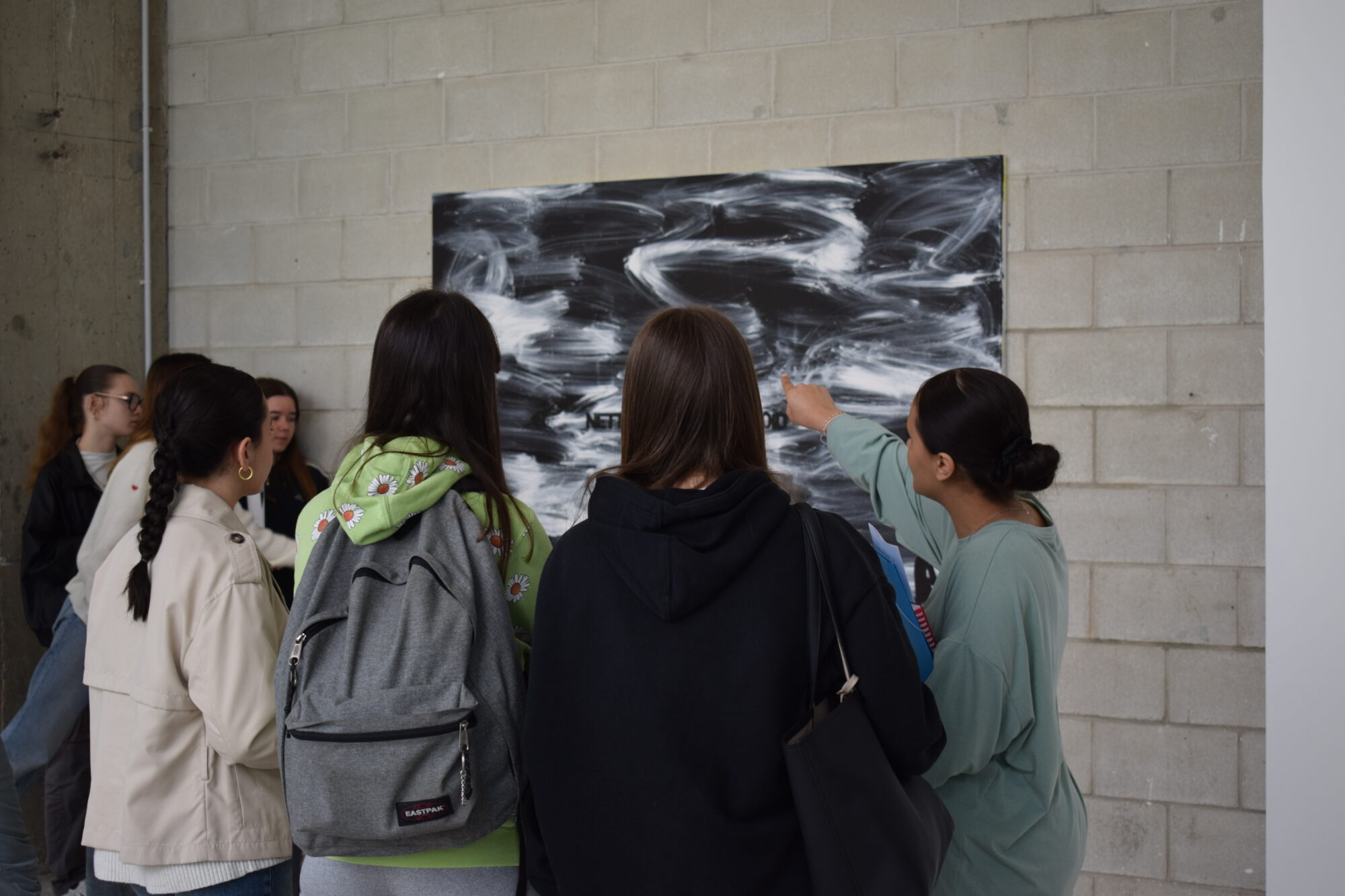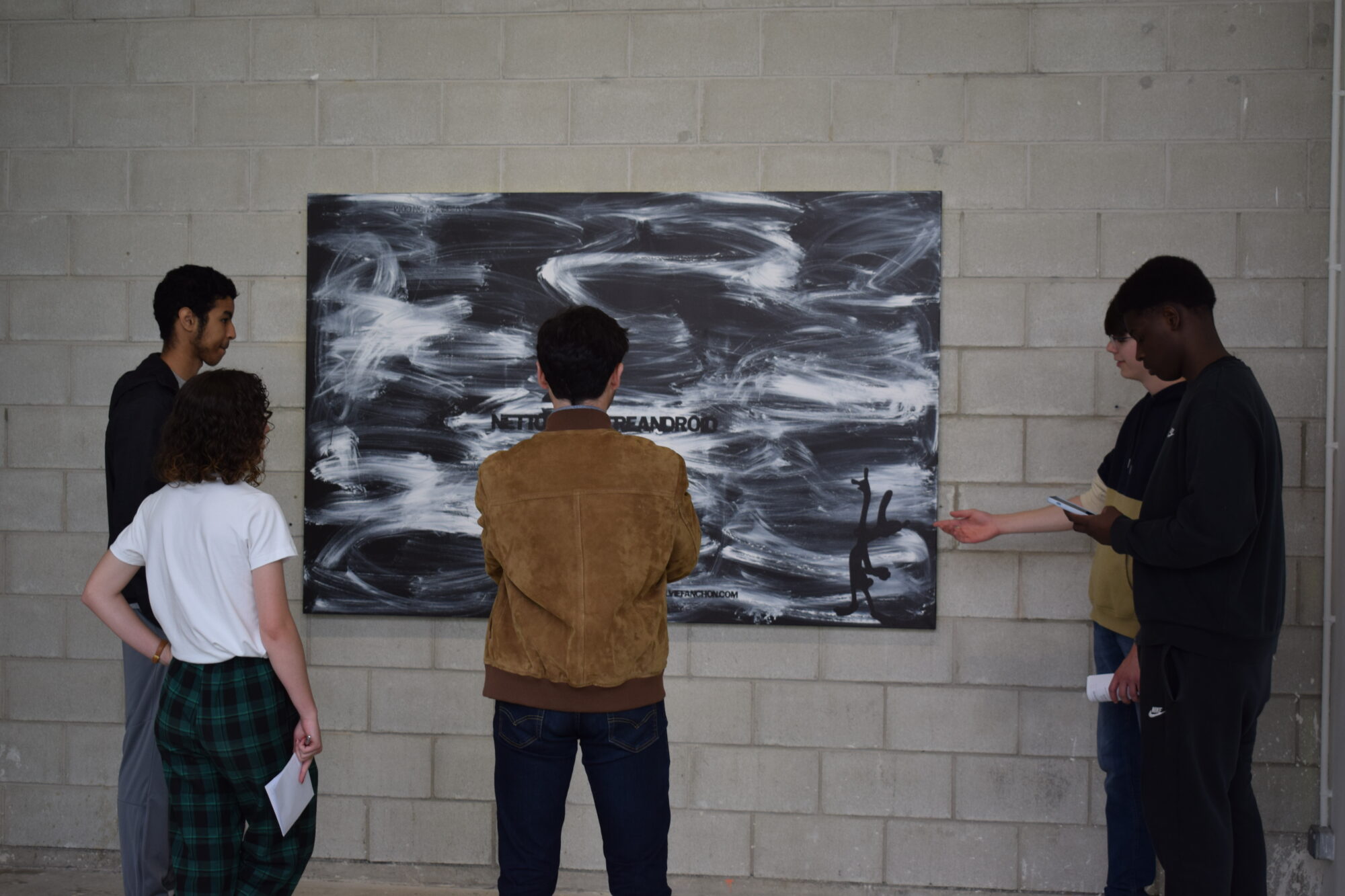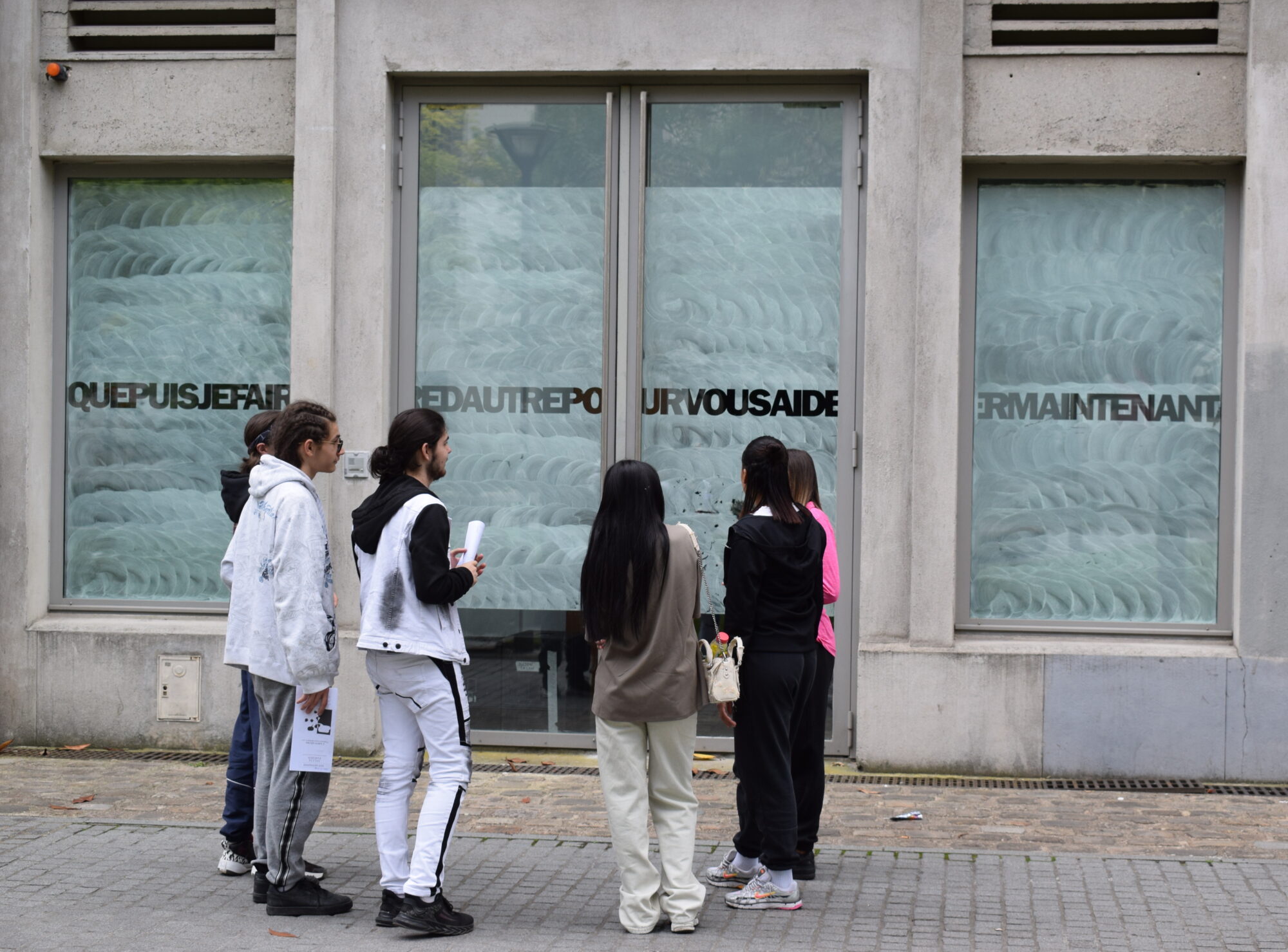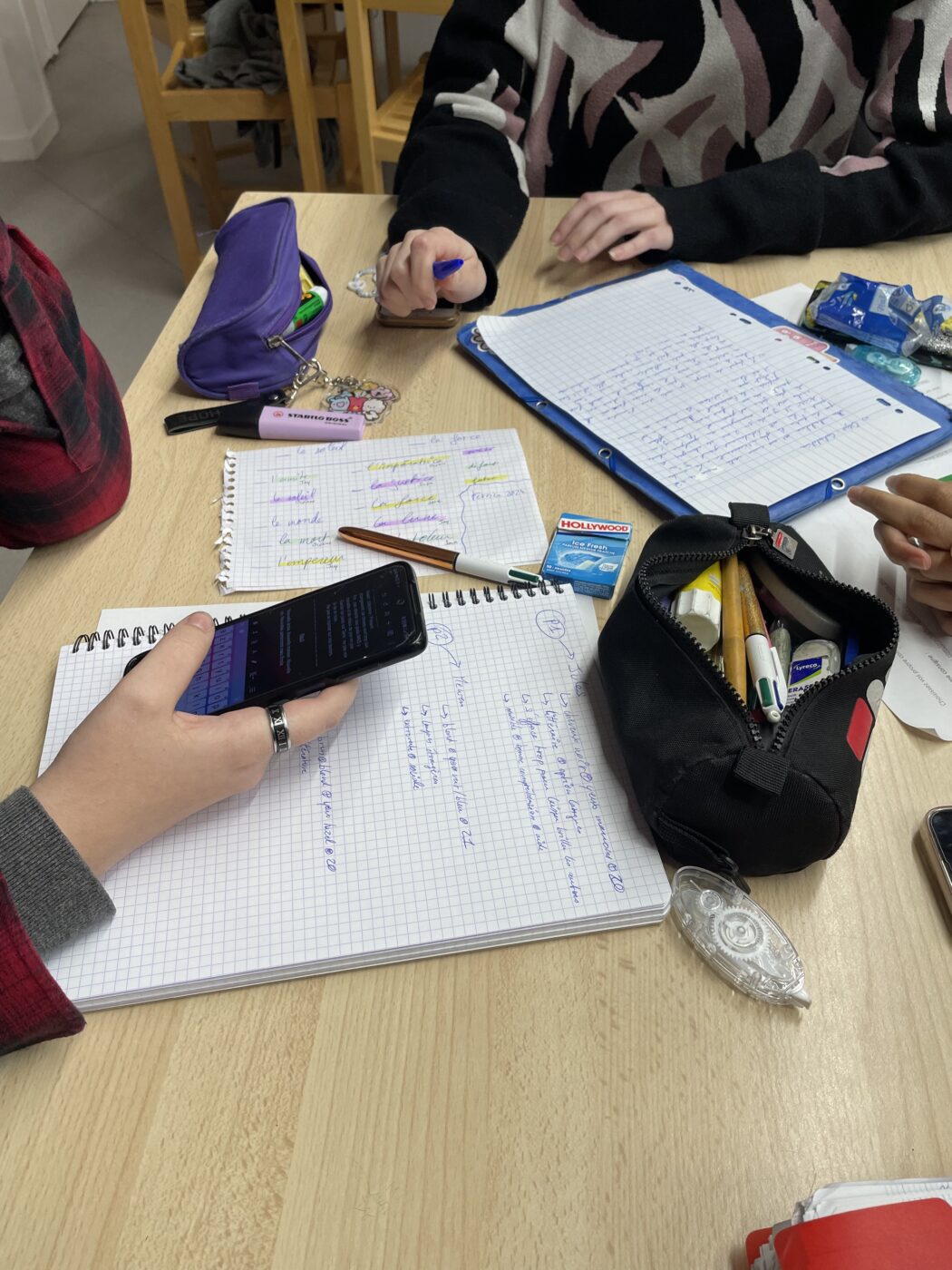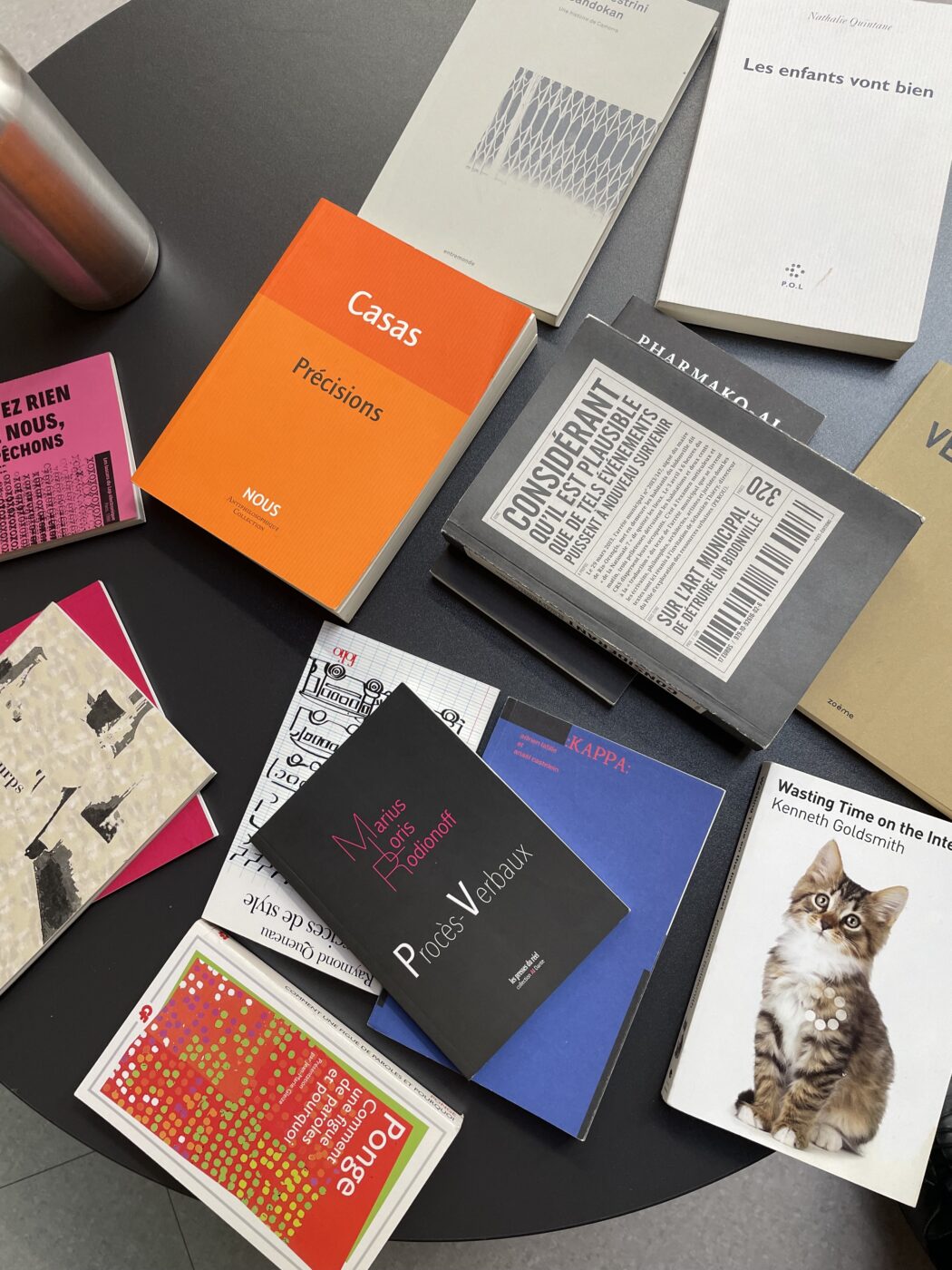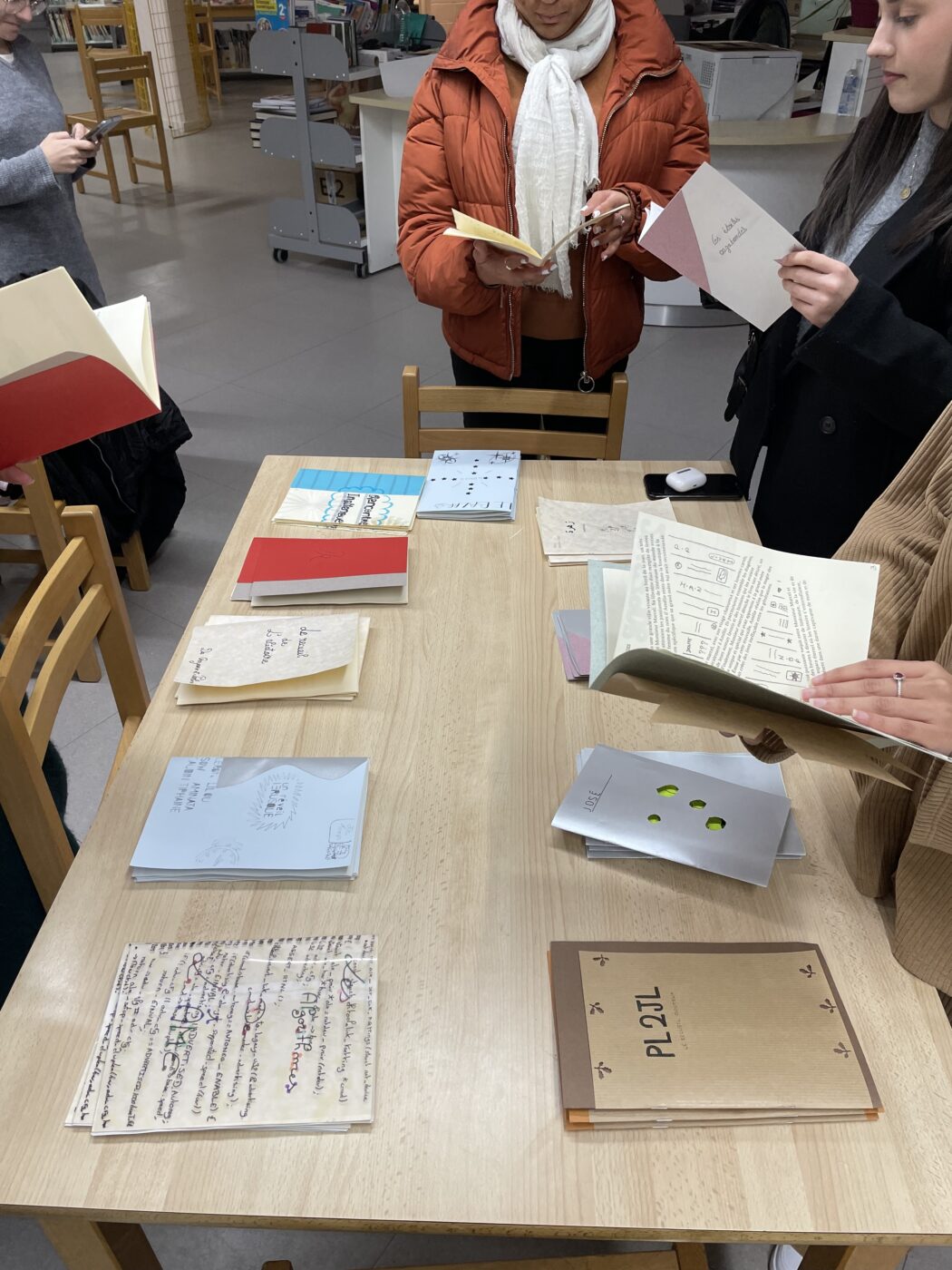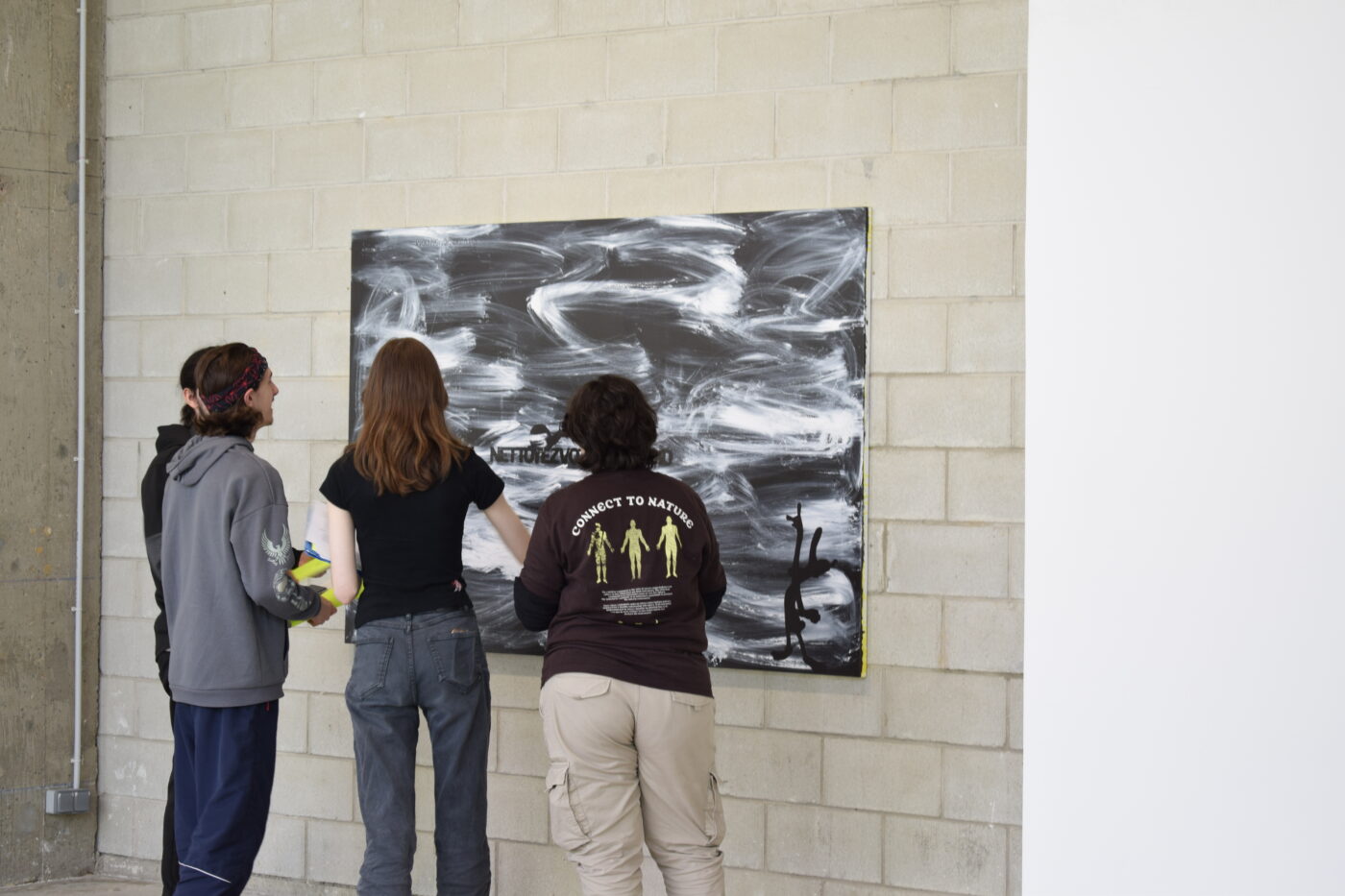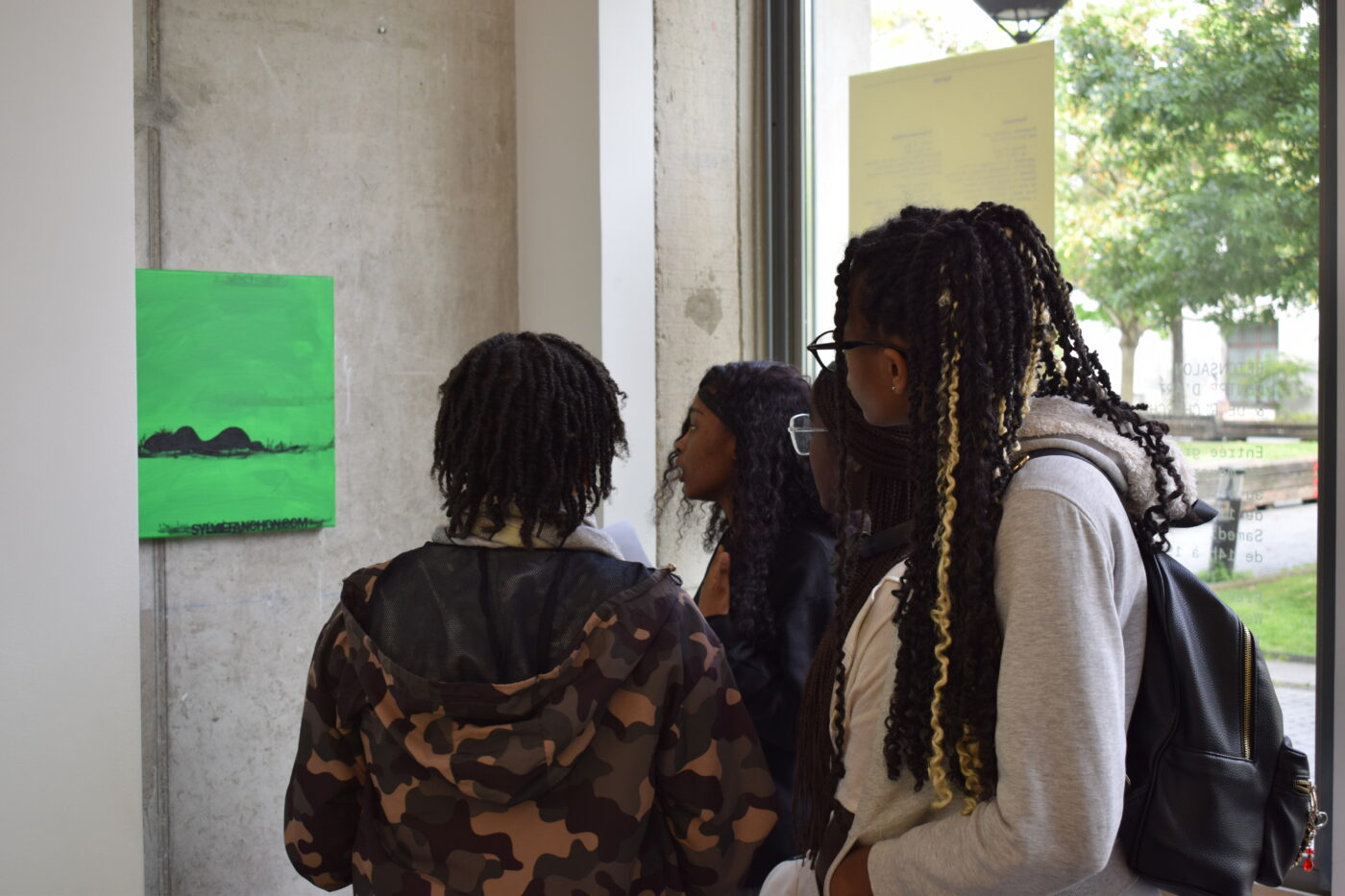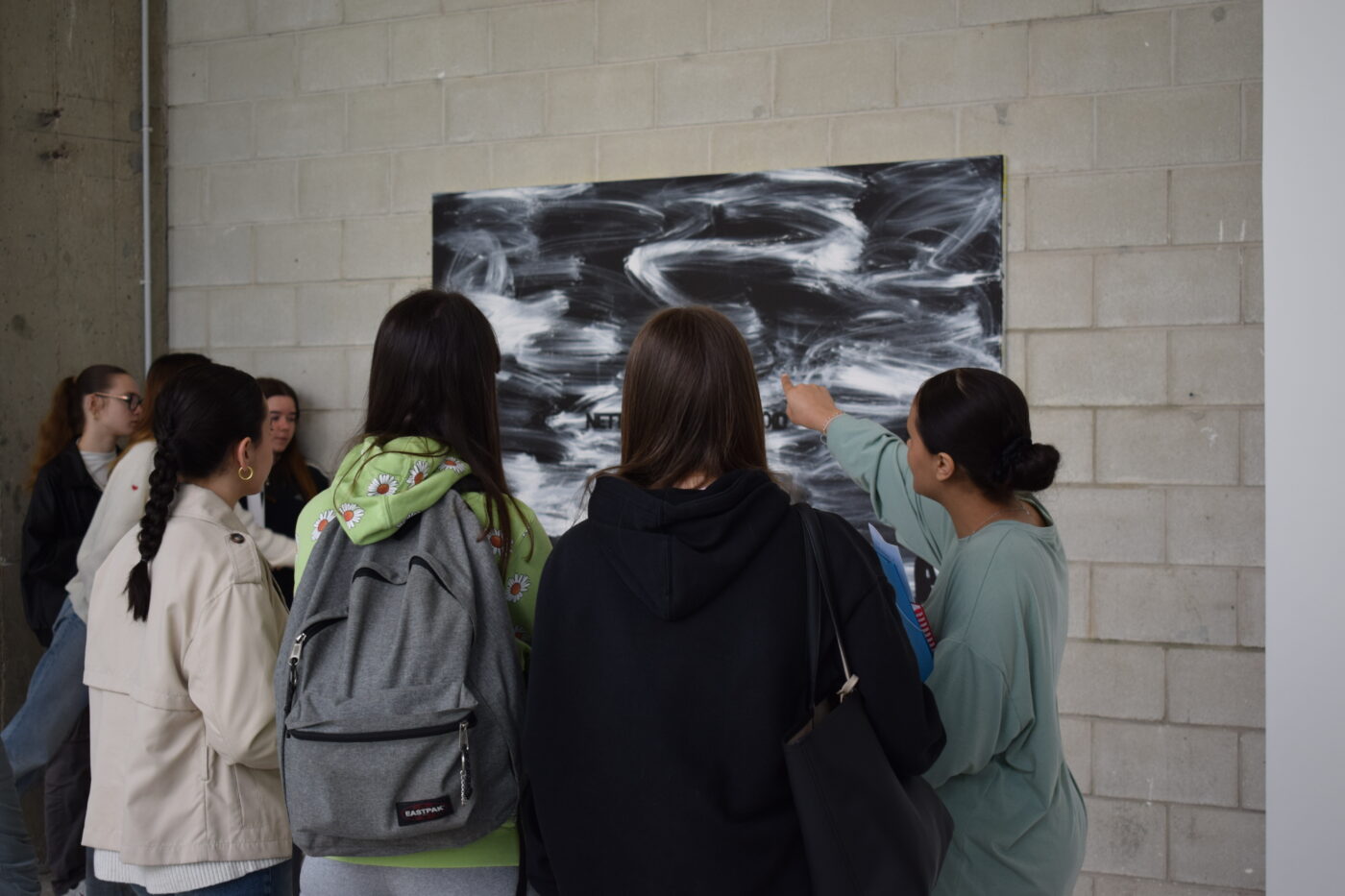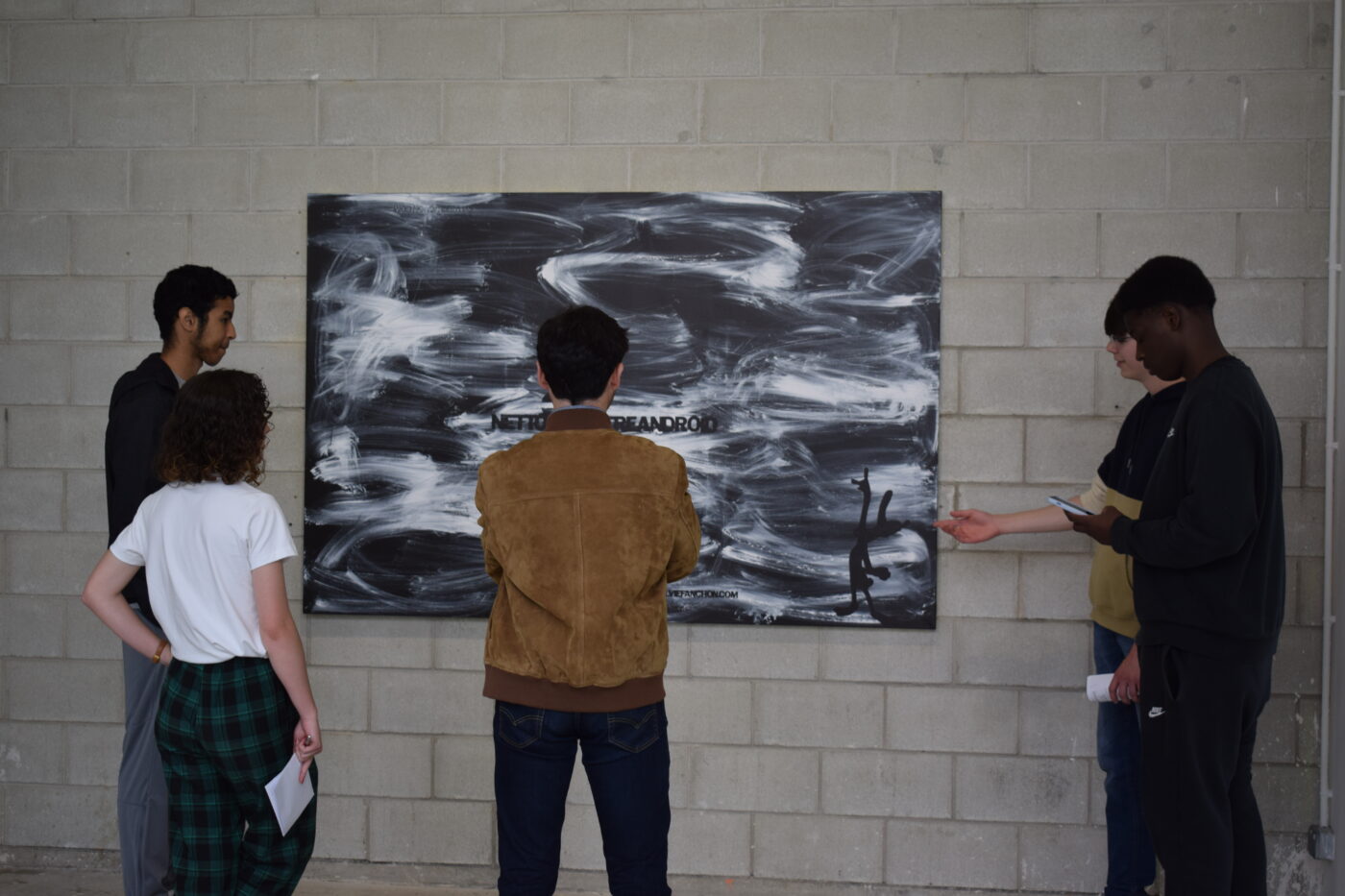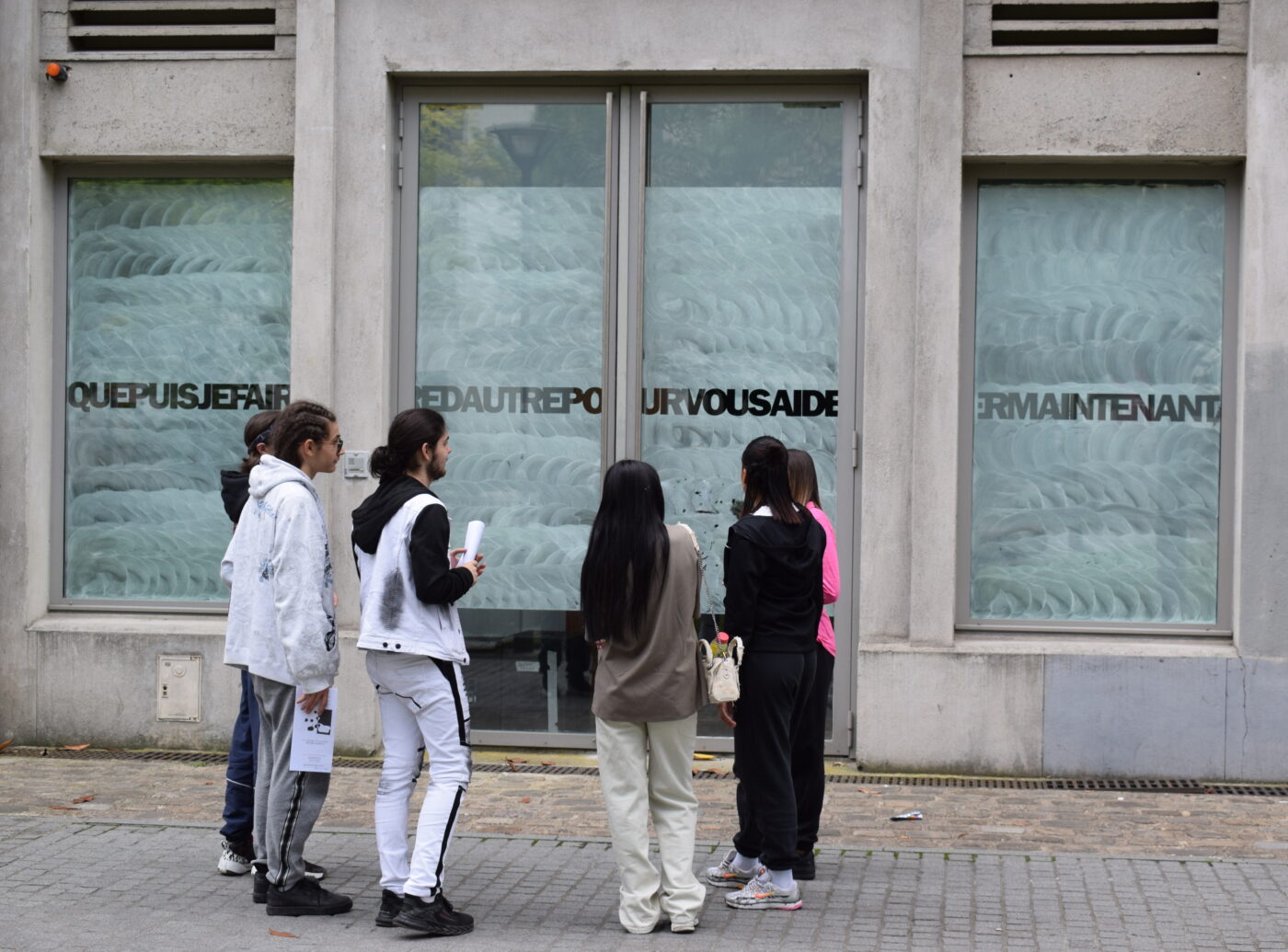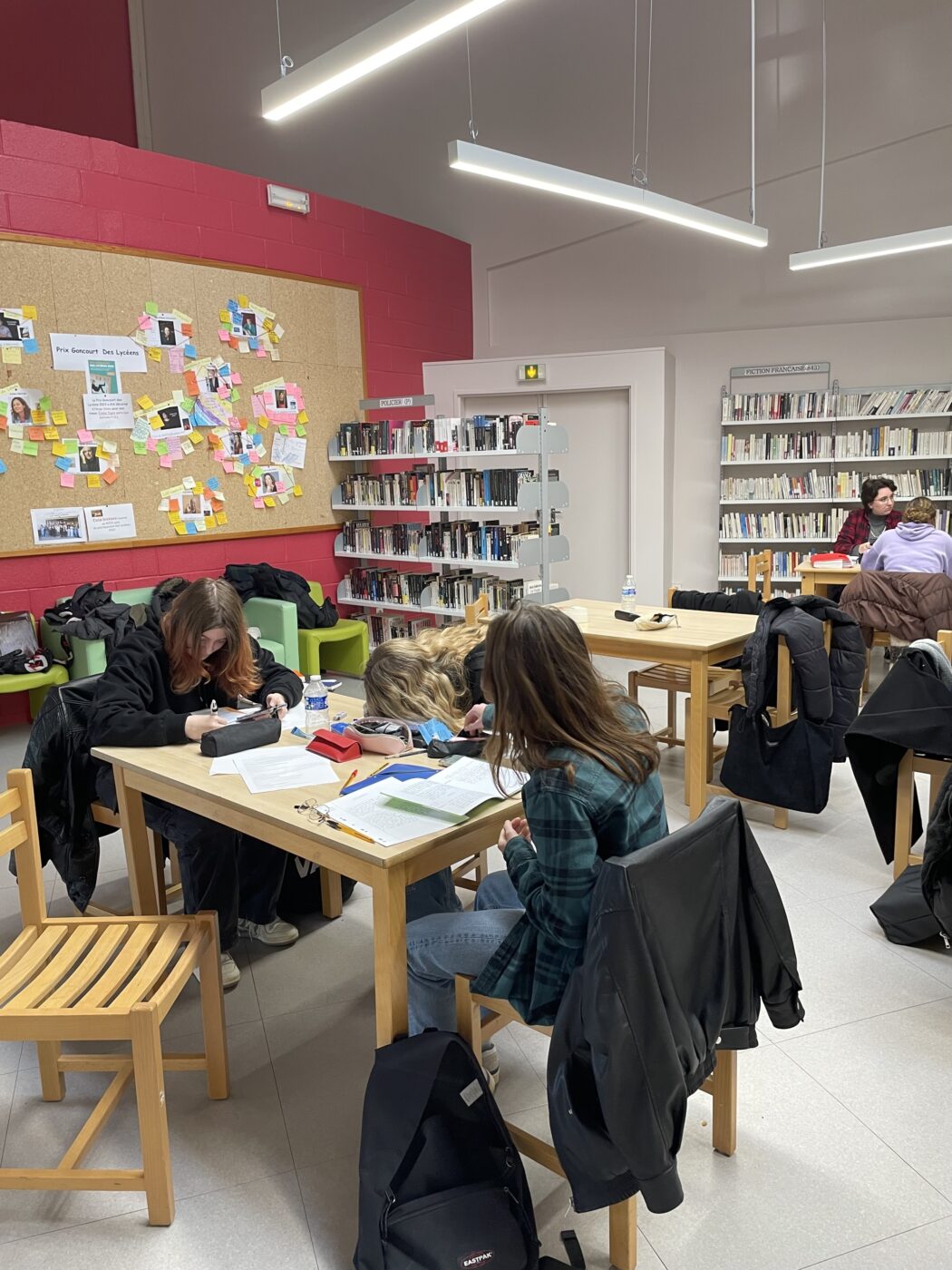
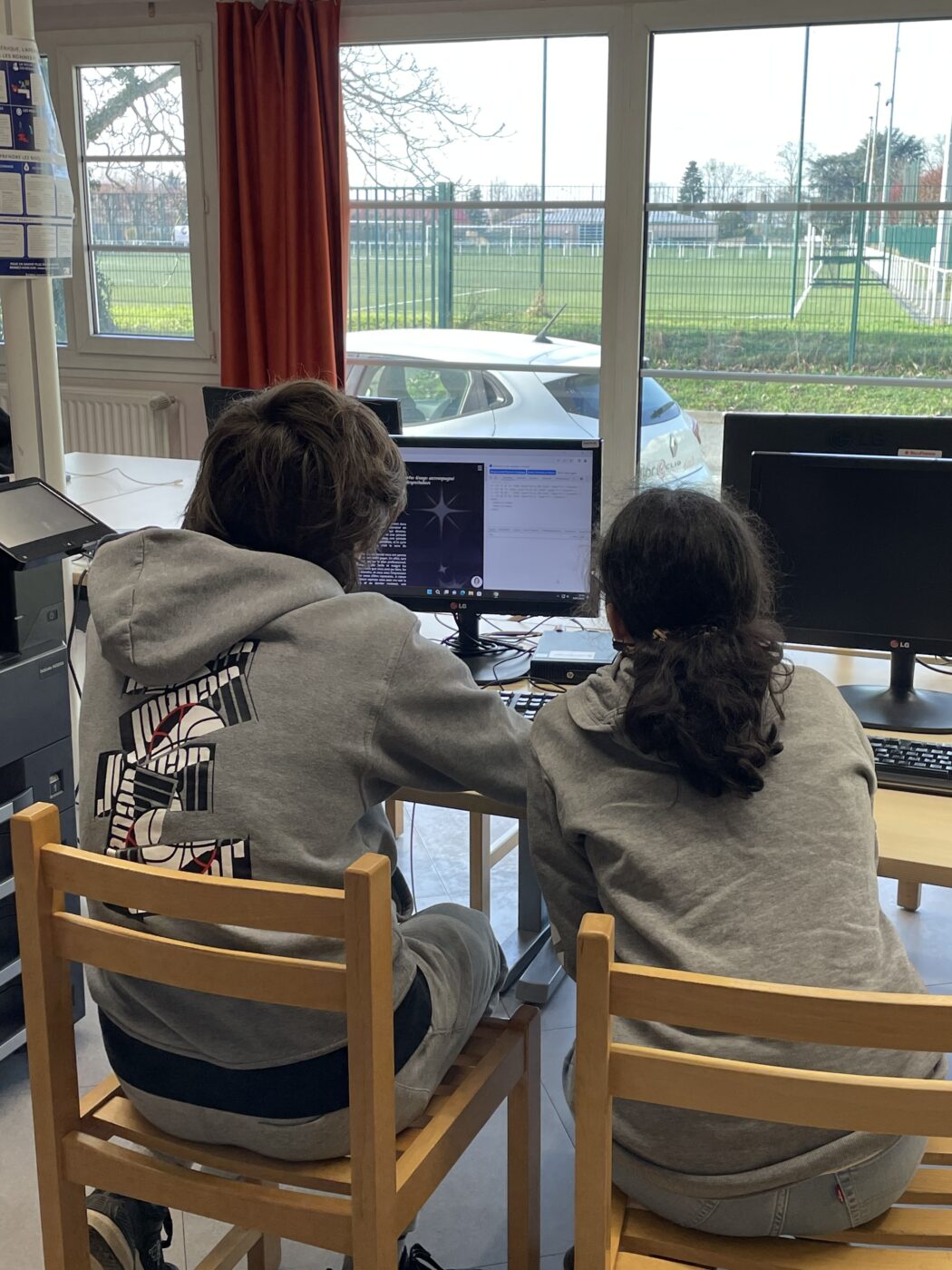
“PACTE” – with Marie de Laurencin Highschool, Mennecy
Théo Robine-Langlois
As part of a “Youth Mediators Program”, a class of senior year students from Marie Laurencin highschool (Mennecy) worked on the exhibition “SOFARSOGOOD”, by Sylvie Fanchon, with the goal of presenting it to another class.
• The Workshop
In preparation for the students’ encounter with Sylvie Fanchon’s work, a workshop with artist and poet Théo Robine-Langlois was primarily organized at the high school to designed and produce small editorial projects. Through this artistic practice time, the aim was to familiarize the students with the universe of painter Sylvie Fanchon through writing. Théo Robine-Langlois held tow days of workshops at the highschool focusing on the remake, cup-up, and collage techniques, methods of writing that particularly resonate with the visual universe of Sylvie Fanchon. Through a series of different exercices, the students were invited to appropriate texts generated by artificial intelligence and/or esoteric sources – such as horoscopes – and to experiment with the playful constraints that allowed the avant-garde to emancipate and critique language.
• The Young Mediators Program
After the workshop, the senior year class was led to discover the exhibition of Sylvie Fanchon, to do research on the artist, and design and conduct a guided tour for two junior year classes, who visited the art center as part of a collective presentation event. During this event, the students also presented the editions they had created with Théo Robine-Langlois.
Théo Robine-Langlois
Théo Robine-Langlois is an artist and writer. He is the co-founder of After 8 Books and Publication Studio in Paris, he is also a correspondent for the web radio station *DUUU. He plays with genres and the dysfunctions of language through the use of a constellation of writing and reading interfaces, from books to screens, radio and the internet. He has published several books of experimental prose and has organised writing workshops in a variety of educational contexts.
This project is supported by DAAC Versailles and the Pass Culture.
